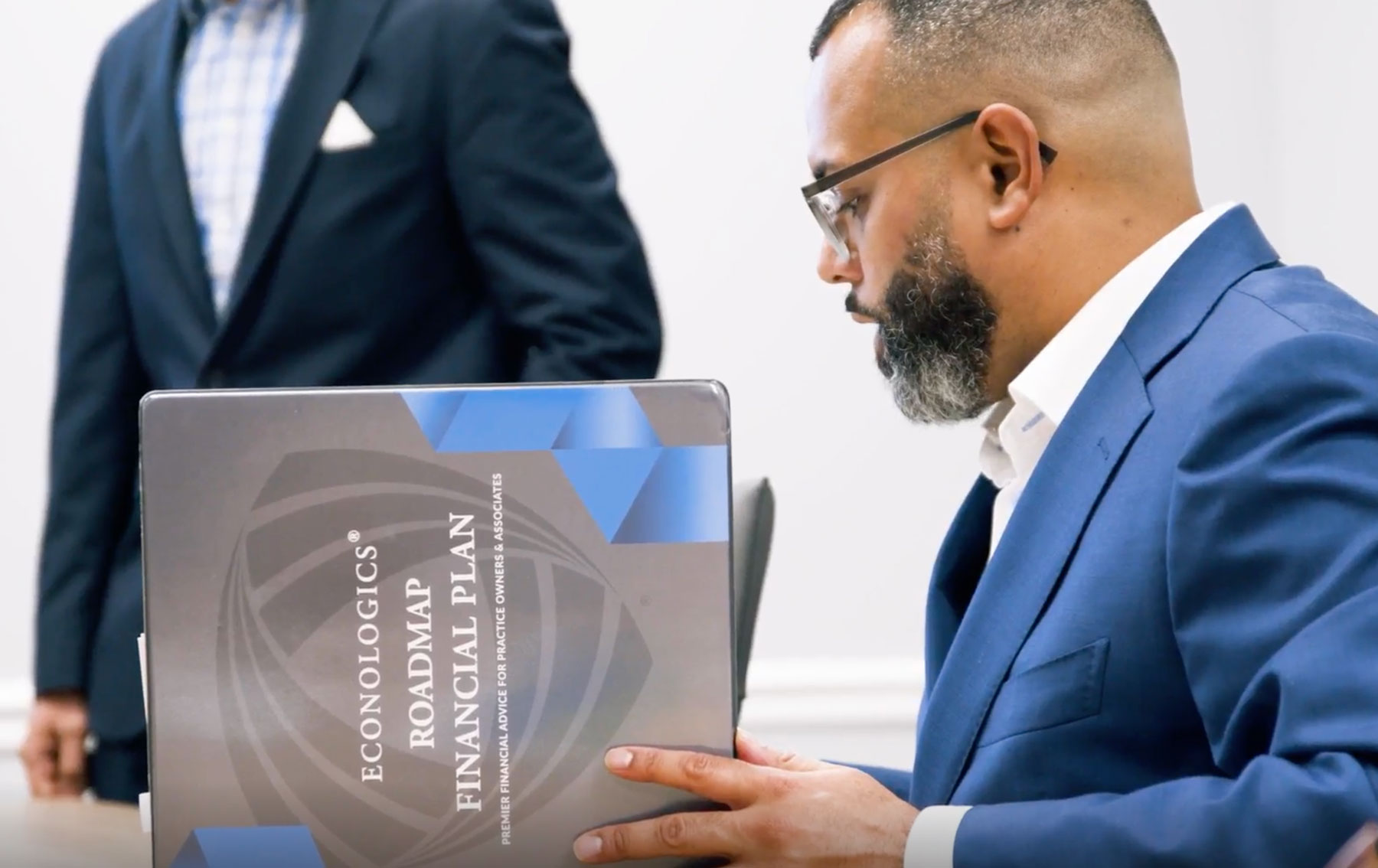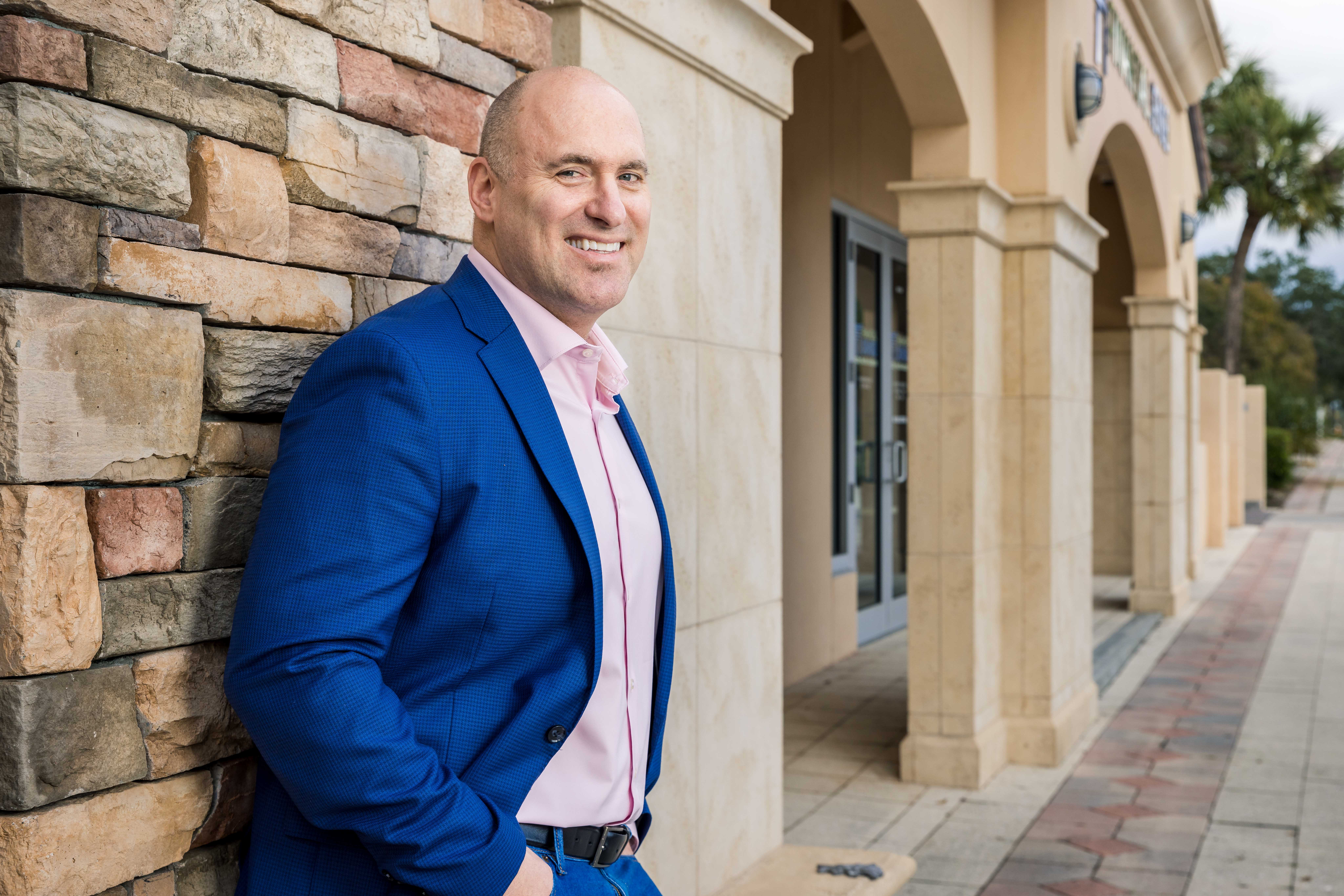By Eric S. Miller, RFC®
For many practice owners, the idea of private practice ownership brings a mix of ambition and anxiety. You want to provide outstanding care, build a great team, and serve your community—but the thought of managing the financial side of ownership can feel overwhelming, especially if you aren’t trained in business.
If you’re concerned by how many practice owners seem to be struggling—and determined not to become one of them—you’re not alone. Those who do run into trouble aren’t failing because of a lack of clinical skills or work ethic. Often, they’re simply operating within a financial system that wasn’t built for their success. If you want both your practice and your household to thrive, it starts with a new way of thinking about money—and a clear understanding of the principles that truly drive ownership success.
This article introduces foundational principles that can help you navigate the first 5 years of ownership (or prepare for them wisely). Whether you’re still considering opening your own practice or already operating one, this is your roadmap to financial stability, confidence, and long-term success.
It’s Not Ownership That’s Risky. It’s Lack of Preparation.
For those contemplating practice ownership, the fear of failure is real. And it’s not irrational. Starting and sustaining a private practice takes more than clinical excellence. It requires financial resilience, strategic thinking, and a willingness to confront parts of the business that may feel uncomfortable—especially the money side. Yet for many, what holds them back isn’t the actual risk, but the perception that they’re not prepared. That’s exactly what this article is designed to address.
Most professionals enter the field with a strong sense of purpose and a desire to serve. But somewhere along the way, many settle into associate roles, uncertain whether they can—or should—make the leap into ownership. Often, it’s not a lack of ambition, but a lack of training. You weren’t taught how to build systems. You weren’t taught how to structure your finances. You weren’t taught how to make a business profitable and personally rewarding.
What’s often overlooked is that private practice ownership isn’t just about generating income—it’s about building an asset. One that can create stability, long-term value, and future income beyond your daily work. The key is learning to think like an investor, not just a clinician. If you treat the business like a job, it will behave like one—limited, unpredictable, and heavily dependent on your personal effort. But when you approach it as an asset to grow and protect, the entire trajectory changes.
Why Owning a Practice Demands a Different Financial Strategy
One of the hardest truths I’ve learned after thousands of conversations with practice owners is that the vast majority of financial advice simply isn’t designed for them. Traditional financial planning models were built for employees with consistent W-2 income, employer-sponsored benefits, and relatively linear financial paths. But once you step into practice ownership, the entire landscape shifts.
Your income becomes variable—often in a good way—but your tax exposure becomes more complex, and your greatest financial asset, the business itself, is routinely overlooked by mainstream advisors. As a result, many owners are left trying to apply employee-based strategies to an entrepreneurial reality—and the plan falls short of the potential that ownership truly offers.
This disconnect leads many practice owners to pour themselves into the business while neglecting the financial structure of their personal lives. The assumption is that if the practice grows, things at home will somehow take care of themselves. But in reality, that mindset can leave you overworked, overextended, and no closer to financial security.
Your practice is not your life—it’s a tool. A resource. A vehicle for creating the kind of life you want for yourself and your family. But to make that happen, you have to build it with purpose. That starts by shifting your thinking: your household is the parent company, and the business exists to serve it—not the other way around.
This change in mindset allows for better decisions and fewer surprises. When you start treating your household as the ultimate beneficiary of your practice, you’ll begin to build systems that automatically move profits where they’re needed most. You’ll fund reserves, reduce debt, invest with intention, and—most importantly—stop relying on hope as a financial strategy. You don’t need to have everything figured out from day one. But you do need a plan that recognizes the reality of ownership and aligns your business success with your personal financial wellbeing.
Your Practice Is More Than a Paycheck—It’s Your Most Powerful Asset
Too often, new owners view their practice purely as a source of income. But if you’ve taken the step into ownership (or are preparing to), it’s time to start seeing your business for what it truly is: an investment asset. Not only is it likely the most valuable asset you’ll ever own, it’s also one of the few you can directly influence.
Unlike stocks or mutual funds, your practice gives you a distinct advantage: control. You know your profession, and you control how the business operates, grows, and performs. That means you can actively increase its value through your decisions, your leadership, and the systems you choose to build.
But to unlock its true potential, you must approach it with the mindset of an investor—willing to study the business side of ownership and learn the fundamentals of financial management. Without that intentional structure, the full return on your time, effort, and risk as an owner remains out of reach. If your clinic can’t operate without you in it, then you don’t truly own a business—you own a job.
You Can’t Simply Coast Your Way to Success
It’s easy to believe that if you just keep working hard, everything will eventually work itself out. But time alone doesn’t create financial security. Action does.
The practice owners who build real wealth and peace of mind aren’t necessarily the smartest or luckiest. They’re the most intentional. They take time to understand the numbers. They confront areas of confusion instead of avoiding them. They make decisions—even imperfect ones—that move them forward.
And when they need help, they seek it from advisors who understand practice ownership. They don’t wait until “things calm down” or “the timing feels right,” because they know that waiting too long to take control only makes the path harder to reclaim.
Getting your financial house in order may seem like a big task, especially if you’re already stretched thin. But the truth is, you don’t have to fix everything overnight. What you do need is a starting point. A plan. A new framework for how to think about your practice, your household, and the financial life you’re working so hard to build.
Because without that structure, even the most successful practice can leave its owner feeling stuck, overwhelmed, or uncertain about the future.
About the Author
Eric S. Miller, RFC® is the Co-Owner and Chief Financial Advisor of Econologics Financial Advisors, a national firm that specializes in financial guidance for practice owners in various healthcare industries.










